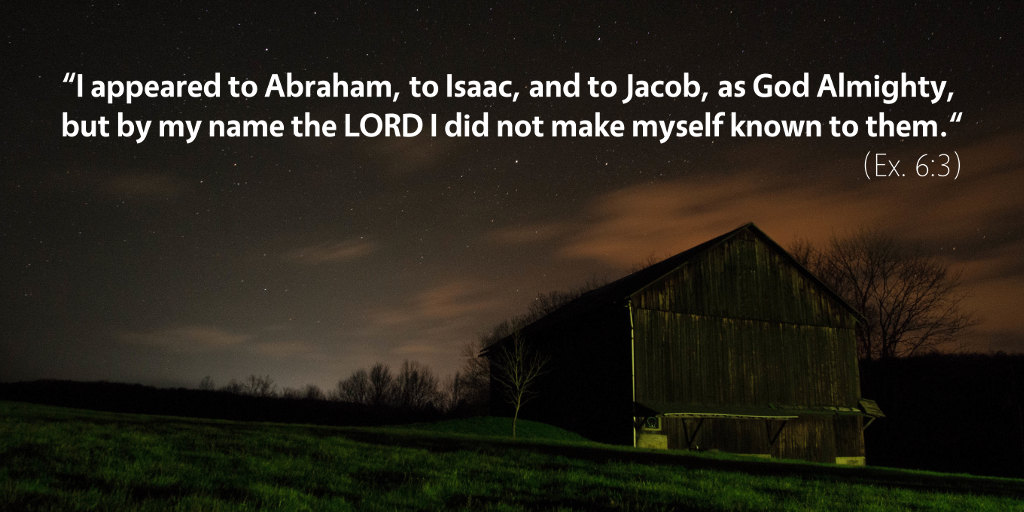Bible Readings for February 23rd
Exodus 6 | Luke 9 | Job 23 | 1 Corinthians 10
In Exodus 5, we saw that the pressure of leadership was beginning to get to Moses. In frustration, Moses asks why Yahweh has done evil to Israel by sending him, since Pharaoh had only increased his cruelty since Moses had come. While Yahweh’s response in Exodus 6 doesn’t immediately resolve the conflict with Pharaoh, Yahweh nevertheless answers Moses’s prayer by giving him all the assurance that he was seeking—and more.
Yahweh insists that he will absolutely send his people out of the land of Pharaoh with a strong hand (Ex. 6:1). Yahweh hasn’t gotten distracted or changed his mind. He proclaims his perfect resolve to do exactly what he said he would do. Really, this was all Moses was asking to know.
But the second thing we see in Exodus 6 is that Yahweh says more. In fact, Yahweh gives an insight that he had not given anyone before—not Abraham, not Isaac, and not Jacob. Specifically, Yahweh tells Moses his name.
Now to be clear, it isn’t as though none of the patriarchs who went before Moses had heard the name Yahweh. There are many reasons to believe that all the people of God knew the name of Yahweh, including the fact that the name of Moses’s own mother was Jochebed (Ex. 6:20), which means “Yahweh [Yah] is glory [chebed].”1 All the patriarchs knew that God’s name was Yahweh.
More importantly, however, we should see that Yahweh doesn’t say, “I did not make my name known.” Instead, he says, “by my name Yahweh I did not make myself known to them” (Ex. 6:3). In other words, Yahweh didn’t reveal the significance of his name in practical terms. In the Bible, “name” is more than what someone is called. Instead, “name” refers to someone’s character. We say the same thing when we talk about “clearing my name.”
Moses was going to see the character of Yahweh in action. He was going to see Yahweh’s outstretched arm redeem Israel out of Egypt with signs, wonders, and “great acts of judgment” (Ex. 6:6). Even more, Yahweh would take Israel as his people and be God to Israel. The word “take” in Exodus 6:7 is the word that would describe the way a man “takes” a woman to be his wife—Yahweh is entering into an intimate, covenantal relationship with Israel.
But while Moses saw Yahweh’s covenantal love partially through the redemption of Israel out of Egypt, we have a better vision. We get to see that Yahweh, out of covenantal love for his people, took on flesh, died on a cross, and rose from the dead, redeeming his people from sin, death, and the devil.
And so it is that through the great acts of God’s redemption in Jesus we come to know the significance of Yahweh’s covenant—keeping name—until he returns to reveal himself to us fully, face to face.
1 Allen P. Ross, “Did the Patriarchs Know the Name of the LORD?” in Giving the Sense: Understanding and Using Old Testament Historical Texts, ed. David M. Howard and Michael A. Grisanti (Grand Rapids, MI: Kregel, 2003), 323–39.
Podcast: Play in new window | Download (5.0MB) | Embed
Subscribe: Apple Podcasts | RSS | More

Scripture quotations are from The Holy Bible, English Standard Version copyright © 2001 by Crossway Bibles, a division of Good News Publishers. Used by permission. All rights reserved.


